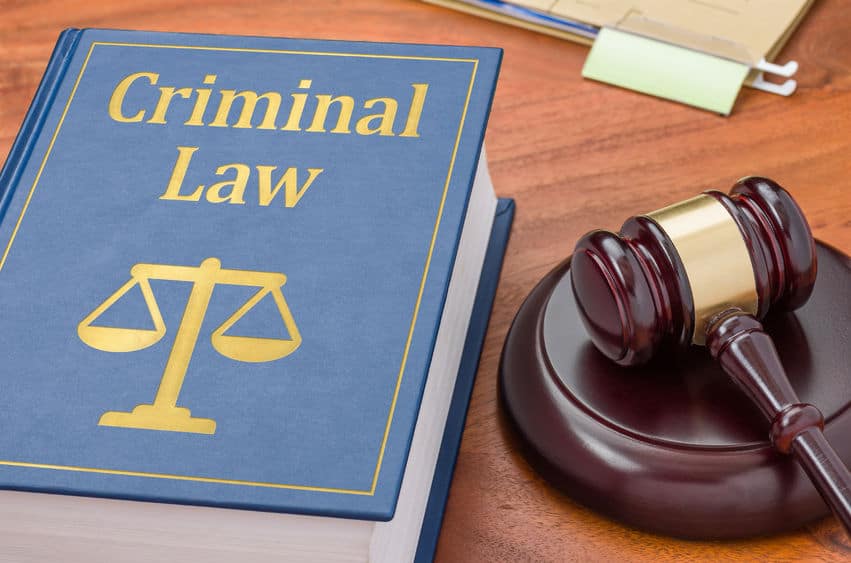A criminal lawyer is a legal practitioner specializing in the defense of people and businesses charged with a criminal offenses. Criminal defense lawyers, also known as criminal lawyers, have argued some of the most complex and sensitive cases throughout history. Criminal defense lawyers are widely recognized for their expertise in handling a wide range of criminal cases, including cases involving serious crimes like murder, sexual assault, DUI/DWI, fraud, drug possession, and more.
What Is the Job of a Criminal Defense Lawyer
Criminal defense lawyers pursue legal proceedings and court cases on behalf of individuals accused of committing crimes, assisting the defense of their clients, and helping them to avoid jail time and penalties. While criminal defense lawyers often represent one client at a time, they are extremely effective when working on a collective defense throughout several different cases. When a case requires the expertise of a criminal defense attorney, it is in your best interest to hire a seasoned attorney with plenty of courtroom experience and outstanding results to ensure you receive the best legal representation possible.
In order to find the best criminal defense lawyer for your particular case, it’s important to understand exactly what this type of attorney does on a daily basis. First, these legal professionals are experts in the law and frequently deal with cases that include complex circumstances and decades-old evidence. A skilled attorney will always put aside personal feelings or prejudice to get all of the facts about the case and present them in court as clearly and professionally as possible. Criminal defense attorneys also perform investigative duties, reviewing all available evidence and resources to determine all necessary strategies for your case. These legal professionals will also draft a comprehensive strategy for your case that will incorporate your unique situation and other relevant details to ensure your chances of obtaining a favorable outcome are the most likely. Once all of the details are presented to the judge, you’ll have the opportunity to fully understand your exact role in the case and whether you’ll be able to successfully defend yourself.
Most prosecutors work with limited resources to bring criminal charges against a suspected criminal defendant. This means that the prosecution presents its case against the defendant to the judge without having done all of the investigating to determine whether there is sufficient evidence to justify a charge against the defendant. In many instances, the prosecutor will present the evidence it has collected against the defendant to the judge but will withhold all other information until it can be presented in court. It is important to remember that the prosecution must prove beyond a reasonable doubt that the defendant is guilty of the crime in order to win a conviction; so it is often difficult for prosecutors to make their case without all of the facts and evidence.
What Are the Tasks Tasks of a Criminal Lawyer
One of the most important tasks of a criminal lawyer is to protect the rights of their client. Most criminal lawyers will refuse to prosecute a case if they believe that doing so would set the client’s case in a different legal category than the one it actually is. As such, they carefully examine all aspects of the crime in question to make sure they have presented all evidence to make a convincing case against their client. Even in cases where the defendant has hired an expensive lawyer, criminal lawyers often try to negotiate a plea bargain to minimize their client’s potential fines or jail time. Ultimately, the goal of every criminal lawyer is to bring his or her client a successful outcome from the criminal charges that are brought against them.
Another key responsibility of a criminal defense lawyer involves cross-examinations with witnesses. Many times, witnesses will lie about what they saw or heard when they testify before a grand jury or in a trial. A skilled criminal lawyer will be able to call these witnesses on their behalf and make sure they provide truthful testimony. In some cases, the witness may be required to testify via a video feed or by live testimony. Either way, a good criminal lawyer can ensure that his or her client gets the best possible deal when it comes to resolving the case.
Criminal lawyers also handle the discovery process at a trial. This means that this is the time when a detective from the police department turns over evidence or discoveries that have been collected during an investigation. The discovery process is intended to help the accused get their day in court because it allows prosecutors to paint a clear picture of what occurred during the commission of the alleged crimes. A skilled criminal lawyer can advise his or her clients as to whether or not there was probable cause to suspect their clients of committing a crime and how to avoid being charged with a crime that they did not commit.
A criminal lawyer is a legal professional specializing in the representation of those charged with criminal offense. Criminal defense lawyers defend clients who have been charged with crime, or are suspected of committing a crime. Criminal defense lawyers provide legal representation to those accused of committing a crime in a criminal court. Criminal defense lawyers can also be called upon to defend individuals who are arrested on suspicion of crimes, or who are involved in the investigation of crimes. While most criminal defense lawyers to attend law school as a form of continuing education, some do not attend any law school at all.
Attorneys who practice criminal law provide legal representation to individuals charged with crimes that can include; murder, manslaughter, arson, assault, DUI/DWI (driving under the influence or driving intoxicated), fraud, drug possession, theft, domestic violence, sex offenses and many other crimes. Criminal defense attorneys take on these complex cases on a contingency basis, and the fees they charge clients are usually below par. In many instances, a criminal defense attorneys are paid by the government for providing this essential legal service. In other cases the government foots the bill completely.
How Is Criminal Law Different from Others?
Unlike many of the specialized fields of law, criminal law is governed by a system of laws that are framed and passed by the legislature. These laws are then enforced by the courts, which are created by state legislators. Individual state judges administer the courts. Criminal lawyers therefore must be qualified to practice law in their state. Qualification requirements vary from state to state and can include; passing the bar exam, completing a degree program accredited by the American Bar Association, passing the state bar exam, having the consent of a state district attorney, and having cleared the state criminal justice exam.
Most criminal defense attorneys will begin their legal representation of a case by making contact with the police. From there they will investigate the circumstances, speak with the defendant and any witnesses, and will then present their case to the state or federal court. The criminal defense attorney will then argue the defendant’s position at trial and will try to obtain a conviction or dismiss the charges against the client. Most state constitutions and laws provide that criminal defense attorneys may also represent misdemeanors. These are minor offenses that are less severe than felonies.
The typical function of a criminal lawyer is to advise their clients on the legal process that will likely result after the arrest and booking. This will often include a meeting with the prosecution and plea negotiations. After these discussions, the criminal lawyer will file all the necessary paperwork to start the criminal trial. At the conclusion of the criminal trial, a verdict is reached and the defendant is either found guilty or not guilty. If the defendant was found guilty, then the prosecution has the burden of proving their guilt beyond a reasonable doubt.
In Conclusion
As a result, most criminal lawyers will hire a private detective or investigator to help them build a strong defense. One way in which the prosecution attacks a case is by using secret witnesses, secret codes, and secret places to plant the evidence of a crime. The criminal defense attorney will often consult with expert witnesses who can dispute the prosecution’s witnesses or evidence or help them build a strong argument against the crime. The expert witnesses then testify on behalf of the client at the trial.








It’s incredible to learn that leaving your criminal case to a defense attorney makes sure that your rights are well represented. I overheard this term in one of the radio dramas I listen to while driving. I’ll keep this in mind so that I could avoid legal penalties when it happens to me.
This article does a fantastic job of outlining the important responsibilities of a criminal defense lawyer. It’s clear and straightforward, making it easy to understand the vital role these attorneys play in the legal system. Learning about how they protect their clients’ rights, investigate cases thoroughly, and advocate for favorable outcomes is not only informative but also reassuring. The article’s emphasis on the dedication and expertise of criminal defense lawyers helps demystify the legal process for those who may be unfamiliar with it. Overall, this article provides a comprehensive overview that has greatly enhanced my understanding of the essential work done by criminal defense attorneys. Great job!
Criminal solicitors play an indispensable role in the justice system. Their expertise, dedication, and support can significantly impact the outcome of a criminal case.